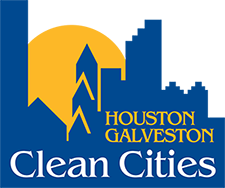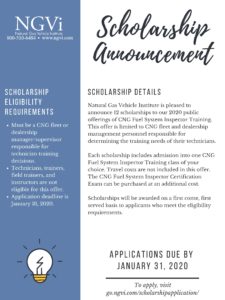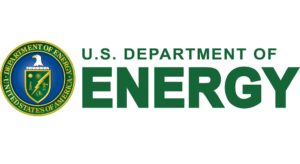Public Law 116-94 retroactively extended the Alternative Fuel Vehicle Refueling Credit to stations placed in service between January 1, 2018 through December 31, 2020. It includes a tax credit for purchasers of natural gas or propane refueling stations, up to 30 percent or $30,000 of the cost of the new station.
TCEQ Opens $6.4M in VW Funds for Freight and Drayage Trucks in the Houston Region
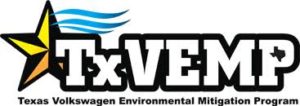 commercial trucks, used to deliver cargo and freight in areas designed as Priority Areas. Incentive funding is available to replace or repower eligible vehicles to reduce the emission of nitrogen oxides in designated eligible counties.
commercial trucks, used to deliver cargo and freight in areas designed as Priority Areas. Incentive funding is available to replace or repower eligible vehicles to reduce the emission of nitrogen oxides in designated eligible counties.- be a Class 4-7 local freight truck or commercial truck used to deliver cargo and freight with a gross vehicle weight rating (GVWR) between 14,001 – 33,000 lbs. or;
- be a Class 8 local freight truck used for port drayage and/or freight/cargo delivery with a GVWR greater than 33,000 lbs;
- have a diesel engine with a model year of 1992 – 2009;
- be considered capable of performing its primary function for the next five years;
- have been continuously inspected and registered in Texas for the two years immediately preceding the application signature date;
- have been used routinely by the applicant in its primary function in Texas for the two years immediately preceding the application signature date; and
- been owned by the applicant for the two years immediately preceding the application signature date.
- be powered by electricity, diesel, or an alternative fuel;
- have an engine model year not more than one year older than the year the application is submitted;
- be certified by the EPA or CARB to a NOx emissions standard or family emissions limit (FEL) of 0.2 g/bhp-hr or lower;
- be used in the same priority priority area as the vehicle being replaced or repowered; and
- be of the same type, weight category, and body and axle configuration as the vehicle being replaced.
- The applicant must commit to use the grant-funded vehicle at least 51% of the vehicle’s annual miles of operation in one of the Priority Areas for the duration of the five-year activity life.
We Need Your Help: The 2019 Annual Vehicle Survey

Alternative Fuel Tax Credit Webinar
DOE Awards Katy Location over $1.4 million for Natural Gas infrastructure enhancement
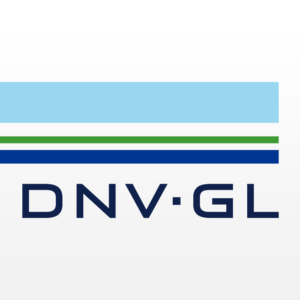 a new, corrosive-resistant, multi-layered coating (metallic and polymeric) used to repair and protect natural gas pipeline repair welds, to reduce natural gas emissions caused by corrosion. The project entitled Reduction of Methane Leaks through Corrosion Mitigation Pre-Treatments for Pipelines with Field-Applied Coatings, will verify the performance of a new metallic-polymeric coating system using an instrumented disbonded coating coupon buried in the field next to an operating pipeline. This project brings together an experienced team consisting of a pipeline company (Enbridge), a welding company (Lincoln Electric), and a corrosion expert (DNV GL USA, Inc).
a new, corrosive-resistant, multi-layered coating (metallic and polymeric) used to repair and protect natural gas pipeline repair welds, to reduce natural gas emissions caused by corrosion. The project entitled Reduction of Methane Leaks through Corrosion Mitigation Pre-Treatments for Pipelines with Field-Applied Coatings, will verify the performance of a new metallic-polymeric coating system using an instrumented disbonded coating coupon buried in the field next to an operating pipeline. This project brings together an experienced team consisting of a pipeline company (Enbridge), a welding company (Lincoln Electric), and a corrosion expert (DNV GL USA, Inc).Control of Air Pollution from New Motor Vehicles: Heavy-Duty Engine Standards
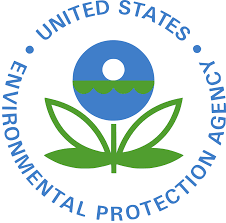 new emission standards for oxides of nitrogen (NOx) and other pollutants for highway heavy-duty engines. It also describes opportunities to streamline and improve certification procedures to reduce costs for engine manufacturers. The EPA is seeking input on this effort from the public, including all interested
new emission standards for oxides of nitrogen (NOx) and other pollutants for highway heavy-duty engines. It also describes opportunities to streamline and improve certification procedures to reduce costs for engine manufacturers. The EPA is seeking input on this effort from the public, including all interestedTCEQ Announces New Round of Grants for The Texas Clean School Bus Program
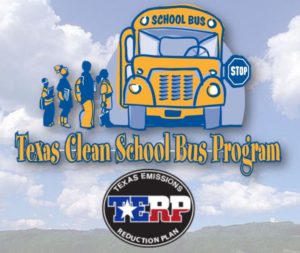 schools, and transportation systems provided by countywide school districts, to replace or retrofit school buses operating on a regular daily route to and from school.
schools, and transportation systems provided by countywide school districts, to replace or retrofit school buses operating on a regular daily route to and from school.Diesel Emissions Reduction Act (DERA) Grants are Available
EPA anticipates awarding approximately $44 million in competitive grant funding under the Diesel Emissions Reductions Act (DERA) National Grants Program. The program is soliciting applications nationwide for projects that achieve significant reductions in diesel emissions and exposure, particularly from fleets operating in areas designated by the Administrator as poor air quality areas.
Application packages must be submitted electronically to EPA through Grants.gov ( www.grants.gov ) no later than Wednesday, February 26, 2020, at 11:59 p.m. (ET) to be considered for funding.

Wednesday, December 11, 2019; 1:00 p.m. (ET)Join Webinar Wednesday, December 18, 2019; 3:00 p.m. (ET)Join Webinar Tuesday, January 14, 2020; 3:00 p.m. (ET)Join Webinar 1+ (202) 991-0477, 4149804# (audio dial-in number)
Supporting Information for RFA
- 2020 Sample Project Narrative (WORD)(16 pp, 700 K, December 2019)
- 2020 Sample Application Fleet Description (EXCEL)(713 K, December 2019)
- 2020 Sample Scrappage Statement (WORD)(1 pg, 15 K, December 2019)
- 2020 Sample Eligibility Statement (WORD)(1 pg, 26 K, December 2019)
- 2020 Sample Drayage Operating Guidelines (WORD)(2 pp, 47 K, December 2019)
- 2020 Priority Area List (PDF)(13 pp, 684KB, December 2019)
- 2020 DERA Transport Refrigeration Unit (TRU) Factsheet (PDF) (4 pp, 90 K, December 2019, EPA-420-F-19-074, About PDF)
Questions and AnswersAll applicants are encouraged to review the Questions and Answers (PDF)(13 pp, 270 K, December 9, 2019) for further clarification of this Request for Applications. The deadline for submitting questions is February 14, 2020 at 4 p.m. ET. The final Questions and Answers document will be posted on February 19, 2020 at 4:00 p.m. All questions and answers, including those from all webinar information sessions, will be added to this document.
Eligible ApplicantsThe following U.S. entities are eligible to apply for DERA National Grants:
- Regional, state, local or tribal agencies/consortia or port authorities with jurisdiction over transportation or air quality
- Nonprofit organizations or institutions that represent or provide pollution reduction or educational services to persons or organizations that own or operate diesel fleets or have the promotion of transportation or air quality as their principal purpose.
School districts, municipalities, metropolitan planning organizations (MPOs), cities and counties are all eligible entities to the extent that they fall within the definition above.
Please refer to the full RFA for specific information about this competition.
Eligible Uses of FundingEligible diesel vehicles, engines and equipment include:
- School buses
- Class 5 – Class 8 heavy-duty highway vehicles
- Locomotive engines
- Marine engines
- Nonroad engines, equipment or vehicles used in construction, handling of cargo (including at ports or airports), agriculture, mining or energy production (including stationary generators and pumps).
Grant funds may be used for diesel emission reduction projects including:
- EPA verified technologies or certified engine configurations
- California Air Resources Board (CARB) Exit verified technologies or certified engines
- Idle-reduction technologies that are EPA verified
- Aerodynamic technologies and low rolling resistance tires that are EPA verified
- Early engine, vehicle, or equipment replacements with certified engine configurations
Funds awarded under this program cannot be used to fund emission reductions mandated by federal law. Equipment for testing emissions or fueling infrastructure is not eligible for funding.
Please refer to the full RFA for specific information about this competition.
Grant ProcessThe RFA includes information on how to prepare and submit a proposal package. The proposal package must be received by the deadline and include the following documents:
- Project Narrative (no more than 11 pages)
- Standard Form SF 424 – Application for Federal Assistance
- Standard Form SF 424A – Budget Information
- Standard Form 424B – Non-Construction Programs
- EPA Form 4700-4 – Pre-Award Compliance Review
- EPA Key Contacts Form – Key Contacts Form
- Applicant Fleet Description information (not included in the page limit)
- Emissions Reduction Calculations (not included in the page limit)
- Cost-Share Commitment Letters, if applicable (not included in the page limit)
- Partnership Letters, if applicable (not included in the page limit)
- Mandated Measures Justification Supporting Information, if applicable (not included in the page limit)
After the closing date, all eligible applications will be reviewed and ranked. Selected projects may be fully or partially funded.
Tools and Resources for Applicants
- Tips for a Successful Diesel Retrofit Project (PDF) (7 pp, 500 K, April 2013, EPA-420-B-13-025) provides tips to help you get started and avoid common mistakes.
- Technology Tips: Diesel Emissions Reduction Program (DERA): Technologies, Fleets and Projects Information (PDF) (36 pp, 1.3MB, October 2011, EPA-420-P-11-001) provides information about retrofit technologies and what to look for.
- Clean Diesel Clearinghouse (CDCH) Exit is a web-based tool that helps users determine the best available emission reduction technology for retrofitting diesel-powered vehicles and equipment.
- Shore Power Technology Assessment at U.S. Ports
